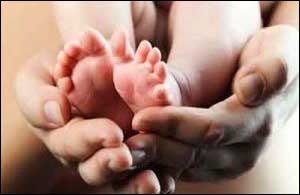- Home
- Medical news & Guidelines
- Anesthesiology
- Cardiology and CTVS
- Critical Care
- Dentistry
- Dermatology
- Diabetes and Endocrinology
- ENT
- Gastroenterology
- Medicine
- Nephrology
- Neurology
- Obstretics-Gynaecology
- Oncology
- Ophthalmology
- Orthopaedics
- Pediatrics-Neonatology
- Psychiatry
- Pulmonology
- Radiology
- Surgery
- Urology
- Laboratory Medicine
- Diet
- Nursing
- Paramedical
- Physiotherapy
- Health news
- Fact Check
- Bone Health Fact Check
- Brain Health Fact Check
- Cancer Related Fact Check
- Child Care Fact Check
- Dental and oral health fact check
- Diabetes and metabolic health fact check
- Diet and Nutrition Fact Check
- Eye and ENT Care Fact Check
- Fitness fact check
- Gut health fact check
- Heart health fact check
- Kidney health fact check
- Medical education fact check
- Men's health fact check
- Respiratory fact check
- Skin and hair care fact check
- Vaccine and Immunization fact check
- Women's health fact check
- AYUSH
- State News
- Andaman and Nicobar Islands
- Andhra Pradesh
- Arunachal Pradesh
- Assam
- Bihar
- Chandigarh
- Chattisgarh
- Dadra and Nagar Haveli
- Daman and Diu
- Delhi
- Goa
- Gujarat
- Haryana
- Himachal Pradesh
- Jammu & Kashmir
- Jharkhand
- Karnataka
- Kerala
- Ladakh
- Lakshadweep
- Madhya Pradesh
- Maharashtra
- Manipur
- Meghalaya
- Mizoram
- Nagaland
- Odisha
- Puducherry
- Punjab
- Rajasthan
- Sikkim
- Tamil Nadu
- Telangana
- Tripura
- Uttar Pradesh
- Uttrakhand
- West Bengal
- Medical Education
- Industry
UK doctors get approval to create three-parent babies

Authorities in the UK have permitted doctors to create the country's first 'three-parent' babies, in a move aimed at preventing passage of incurable genetic diseases from mothers to offsprings.
The Human Fertilisation and Embryology Authority (HFEA), which works independently under the UK's Department of Health, yesterday approved the procedures to be applied on two women in the city of Newcastle in northeast England.
However, critics of the treatment have flagged concern over parents misusing the technique to get "genetically modified" babies.
The procedure will use mitochondrial donation therapy for the women, who know that any children they have could inherit a neurodegenerative disorder, which causes problems with movement or mental functioning.
"Our statutory approvals committee has considered applications from the Newcastle Fertility Centre at Life, part of Newcastle upon Tyne Hospitals NHS Foundation Trust, for the use of mitochondrial donation in treatment for two patients, both of which have been approved," an HFEA spokesperson said.
By taking the mitochondrial DNA from a donor "mother" instead of using their own, the women can be assured that the genetic conditions will not be passed on.
The procedure, which has already been successfully tested in Mexico, will be overseen by Mary Herbert, professor of reproductive biology, and her team to create the first three-parent baby in the UK.
The procedure has been seen as controversial because any offspring from such a procedure will then have DNA from three parents. However, experts believe that because mitochondrial DNA is separate from core DNA in cells, there will be no impact on the personality or looks of the offspring from the third DNA set.
Records from the HFEA's approval committee meeting reveal the two women to undergo the first such procedure carry mutations in a gene that causes a rare condition known as myoclonic epilepsy with ragged red fibres, or Merrf syndrome - a severe neurodegenerative disorder that worsens over time and often results in an early death.
The condition, which affects one in 100,000 people, is typically diagnosed in early childhood or adolescence when people develop sudden spasms which progress to a loss of muscle control, weakness, deafness and dementia.
"It is likely that any child conceived may be affected with this serious multi-systemic and progressive disease which severely impacts on affected individuals' quality of life, often resulting in high morbidity and early death," HFEA officials said.
Neither woman, who have chosen to remain anonymous, was deemed suitable for an IVF procedure called pre-implantation genetic diagnosis (PGD), which can pick up harmful mutations in IVF embryos but can only help if at least some of the embryos are healthy.
A decision to grant the Newcastle Fertility Centre a licence to carry out mitochondrial donation procedure had been made in March 2017.
Medical Dialogues Bureau consists of a team of passionate medical/scientific writers, led by doctors and healthcare researchers. Our team efforts to bring you updated and timely news about the important happenings of the medical and healthcare sector. Our editorial team can be reached at editorial@medicaldialogues.in.
Next Story


